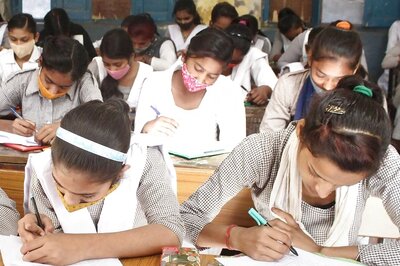
views
Katowice: After hours of brainstorming and negotiations between the 190 countries that participated in the UN climate change summit, when the 150-page consolidated draft was finally put together early Friday, it became clear that the road to a robust Paris rulebook will not be easy.
The rulebook will implement the Paris accord signed in 2015, under which over 190 nations have committed to take steps to fight climate change.
Although it was the final day of the two-week long summit in Katowice, the discussions got extended as the tug of war between developed and developing nations continued overnight. The contentious issues such as climate finance, flexibility in reporting, differentiation and a loss of damage remained on the table as negotiators scrambled for a middle ground.
The contours of this rulebook will decide how much the countries will do to reduce their carbon emissions and enhance the set targets of transition to clean energy from fossil fuel. It will also decide how much financial support the poor and developing nations get from rich countries to set solar and wind energy plants and deal with the rising climate impacts.
The group of Least Developed Countries (LDCs) and Association of Small Island States (AOSIS) demanded that the developed world “welcome” and acknowledge the special report of Intergovernmental Panel of Climate Change (IPCC) on 1.5º C (SR 1.5) and integrate loss and damage in the rulebook.
However, India remained hopeful for a “favourable outcome”. AK Mehta, the lead negotiator of India’s delegation, said, “We are not very far away from reaching an agreement.”
In the IPCC special report was released last October, the eminent scientific body warned against the rising temperature of the globe. Experts across the world have been stressing on the need for strong commitments and a powerful rulebook to battle the threat.
“We face a very serious dilemma, stark, cruel dilemma. On the one hand there is a severe, direr crisis. Dealing with it cannot be delayed. It is the most important decision that has arisen in the human history. This generation, in fact, today’s leaders and people, will make a decision as to whether organised human societies can survive in any decent livable form. It is no less than that,” Noam Chomsky, professor of MIT, told the Climate Summit through a video statement on Friday.
However, as feared, the US and its close allies such as Australia, Japan and Canada dug in their heels to accept the key demands of climate finance as well as loss and damage. It means that the developed world will neither provide adequate funds for clean (renewable) energy targets as demanded by the developing countries nor would it compensate for the damage in poor and developing countries caused by cyclonic storms, flood, prolonged droughts and rising sea levels.
The rich nations also rejected the demand of “flexibility to all” in reporting about the steps taken to transition to greener development. They maintain that emerging economies like India and China cannot be bracketed with poor nations like Ethiopia and Nepal.
In a statement, Delhi-based Centre for Science and Environment (CSE) said: “There is no mention of raising ambition in action and support post 2020 and integrating it with science. For pre-2020, the developed countries are merely encouraged to step up their pre-2020 ambition. ‘Loss and damage’ is the weakest and clearly implies that developed countries have turned a blind eye to the most existential impacts of climate change on poor and vulnerable countries.”
While siding with the United States, the European Union did not take any step to bridge the divide, as was expected by many developing countries and civil society members. Laurence Tubiana the CEO of European Climate Foundation said, “That is certainly one of the questions we have on the table. Loss and damage reference has to be made. It is a reality as we are witnessing the impacts (of climate change) today. I hope they will find the solution. It is important to have that reference.”
The robustness of the rulebook will determine how Paris agreement succeeds in combating the climate change.



















Comments
0 comment